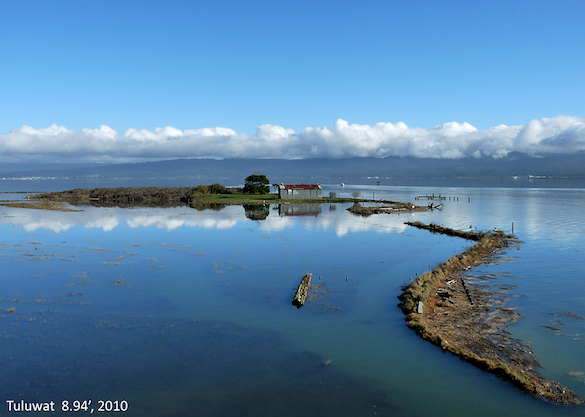Humboldt Baykeeper lauds that proposal is ‘directing action’
A bill introduced by a state Sen. Scott Wiener (D-San Francisco) that will address ocean acidification and water quality issues has been introduced and it’s being supported by a wide variety of stakeholders.
Senate Bill 69, authored by Wiener, is aimed at reducing landbased sources of pollutants, the restoration of wetlands and the sequestration of greenhouse gases and to protect wildlife and keystone species.
The bill specifically addresses timber harvest practices with an aim to limit the amount of sediment that flows into local rivers and streams and which then impacts the quality of water for bays and the ocean.
“This bill adds a layer of oversight that has been missing in the timber harvest plan approval process,” said Noah Oppenheimer, executive director of the Pacific Coast Federation of Fishermen’s Association. He added the timber plans must be turned over to the local regional water quality control board but from there they have not been actively reviewed.
“The boards are required to review those plans but they often slip through the cracks,” Oppenheimer said. “This bill includes a provision to review those sediment management plans so we can close this loophole.”
Water quality issues are of paramount importance to the North Coast fisheries and aquaculture on the bay and one of the goals of the bill is to address ocean acidification caused by the increase in carbon dioxide in the atmosphere.
Shellfish, eelgrass, kelp and seaweed are all vulnerable to temperature changes and ocean acidification and any steps that can improve water quality, whether it’s a freshwater river or Humboldt Bay, would be welcomed by those who make a living on the water.
“We need clean water with no bacteria and we need healthy ecosystems and one of the keys there is some water quality stuff in this bill,” said Greg Dale, manager at Coast Seafoods in Eureka. “Shellfish and seagrasses are all good carbon fixers. They aid in alleviating some of the potential for acidic ocean conditions.”
Dale said one of the key reasons there is a thriving aquacultural base on the bay is due to the coordination and cooperation with local cities and the county, pointing out that the cities of Arcata and Eureka have been excellent to work with and both cities are focused on water quality that serves aquaculture.
“Eureka, Arcata and the county are all very proactive when it comes to water quality,” Dale said, adding the recent winter storms led to wastewater runoff into the bay that did impact oyster beds but that’s a part of their normal operations. “We know when we have big storms the systems can’t keep up, even the Eel River can’t keep up and we know what happens to the water quality. It’s fairly predictable because the agencies monitor the water and take great care when they do it. Coast Seafoods isn’t looking to expand on the bay but the industry would like to grow on the bay and all the work the municipalities do allow us to grow oysters.”
One of the key reasons the bill has gained the support of a wide variety of stakeholders is because it calls for action. The measure will require the state Department of Fish and Wildlife to implement new projects to improve Chinook salmon fisheries in the Central Valley and across the salmon fishing industry in the state, require timber harvest plans to be reviewed before approval and require the Natural Resources Agency to identify watercourses that will be listed on the California Endangered Rivers List.
“What I like about the measure is it puts things into actions. It’s not just plans and studies, it’s directing action. I’m tired of the plans that get made and then sit on a shelf,” said Jen Kalt, executive director of Humboldt Baykeeper. “One of the reforms is it will require timber harvest plans to adhere to Total Maximum Daily Loads. Timber practices are the biggest contributor to sediments in the streams and the goal is to reduce that sedimentary delivery and the Regional Water Quality Control Board is not doing anything.”
Kalt also pointed out local issues on Humboldt Bay are twofold. Dredging is definitely an issue because of heavy sedimentation in the bay and the dredge spoils, which can be used for wetland restoration, are prohibitively expensive to move from one location to another.
“Wetlands are incredible at sequestering carbon and when we dredge we get spoils that can be used for wetland restoration,” Kalt said, adding the cost to contain and dewater the spoils so that they can be used and then move it to an area in need of restoration is too high. “The evident solution is to use it for restoration, but there is just no money for that. The permitting is expensive and the Harbor District is operating on a shoestring budget.”
Kalt said the importance of wetland restoration is a key part of the bill because those areas play a key role in filtering pollutants and help protect the shoreline from storm damage and support fish and bird habitats.
“We need to stop pretending no net loss of wetlands is good enough,” Kalt said. “We need net gains in wetlands and this bill will do that.”
Read More



